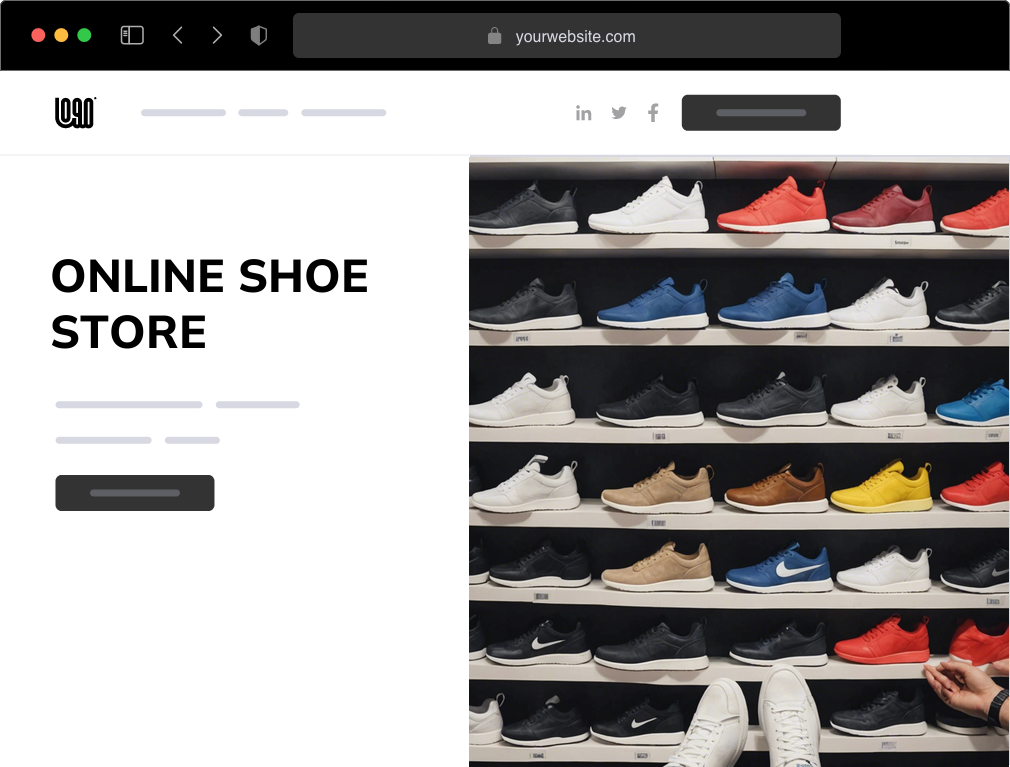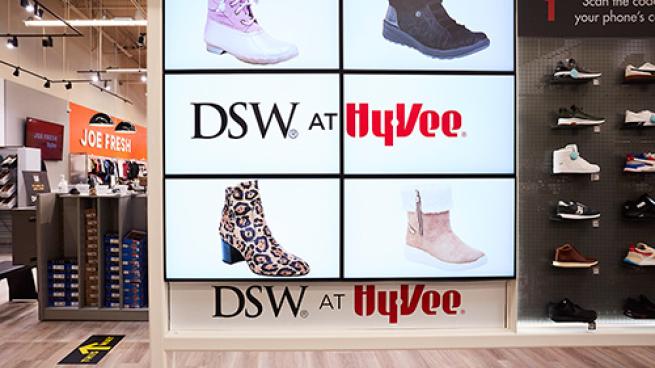Pandabuy Shoe Store: Your Ultimate Destination for Trendy Footwear
Pandabuy Shoe Store: Your Ultimate Destination for Trendy Footwear
Blog Article
Leading Patterns in Shoes Ecommerce for 2024: What You Required to Know
As we approach 2024, the landscape of shoe eCommerce is positioned for substantial change, driven by cutting-edge trends that guarantee to improve customer interactions and purchasing habits. Trick developments such as AI personalization, sustainability efforts, and the surge of social business are set to redefine exactly how brand names get in touch with their target audiences. Innovations like virtual try-ons and registration models will even more improve the buying experience. Recognizing these fads is critical for any industry stakeholder looking to remain competitive in a rapidly developing marketplace. What implications do these shifts hold for the future of footwear retail?
Surge of AI Customization
The increase of AI personalization in the shoes eCommerce sector is improving the means consumers engage with brand names. As stores utilize advanced algorithms and artificial intelligence, they can currently customize the buying experience to individual choices, boosting consumer satisfaction and commitment. With data evaluation, AI systems recognize patterns in customer behavior, enabling brand names to provide individualized product recommendations, promos, and material.
For example, vibrant product display screens change in real-time based on customer interaction, making certain that clients are presented snappy that resonate with their preferences. This level of modification not only boosts the buying experience but likewise drives conversion prices, as customers are much more most likely to buy items that line up with their choices.
This improved communication cultivates a much deeper connection between consumers and brands. pandabuy. Accepting this fad is essential for brand names aiming to flourish in the competitive landscape of 2024 and beyond.

Sustainability in Footwear
Stressing sustainability in footwear has actually come to be an important emphasis for brands as consumers increasingly prioritize green practices. The shoes sector is responding by embracing lasting products, ethical production techniques, and transparent supply chains. Brands are now making use of recycled products, such as plastic and rubber, to create trendy and long lasting shoes. This shift not just minimizes waste yet also appeals to environmentally mindful customers.
In addition, firms are applying cutting-edge manufacturing strategies that decrease carbon impacts. For circumstances, 3D printing and automated production procedures lower product waste and power intake. Additionally, numerous brands are committing to ethical labor techniques, making certain reasonable salaries and safe working problems for their staff members, which resonates strongly with today's socially mindful customers.
To improve sustainability efforts, brand names are likewise focusing on the concept of circularity. This consists of take-back programs that motivate customers to return old footwear for refurbishing or recycling, therefore prolonging product life and lowering garbage dump waste. As the need for lasting footwear proceeds to increase, firms that prioritize eco-friendly techniques will likely gain a competitive side in the marketplace, cultivating brand commitment and attracting brand-new customers dedicated to sustainability.
Development of Social Commerce
Maximizing the surge of social media platforms, brand names are increasingly integrating social commerce right into their sales strategies, recognizing its prospective to involve customers straight. This trend has transformed exactly how customers uncover and purchase shoes, with platforms like Instagram, TikTok, and Facebook progressing right into crucial sales channels.
Brands are leveraging shoppable messages, online streaming occasions, and influencer collaborations to develop immersive purchasing experiences that reverberate with their target audience. By utilizing visually attractive material and genuine narration, footwear brand names can successfully display their items and cultivate a feeling of area amongst customers.
In addition, the usage of user-generated web content has actually come to be crucial in building trust and reliability. Consumers are most likely to purchase shoes when they see actual individuals utilizing and supporting the products. This natural type of marketing not only helpful site boosts brand name loyalty but additionally drives conversions.
As the landscape remains to progress, shoe brands have to continue to be active, adapting to the latest social business functions while evaluating consumer actions to enhance their techniques. By embracing this development, brands can record the interest of a wider target market, inevitably driving sales and improving consumer engagement in the affordable ecommerce market.
Virtual Try-Ons and AR
Changing the on the internet shopping experience, digital try-ons and see this increased reality (AR) modern technologies are coming to be necessary tools for footwear brands in 2024. These innovations enable customers to picture how footwear will fit and look before purchasing, attending to one of the most significant discomfort points in on the internet shopping: unpredictability about fit and style.
By leveraging AR, customers can use their devices or mobile phones to see a reasonable overlay of footwear on their feet. This immersive experience not only boosts engagement yet also significantly minimizes return prices, as purchasers are extra confident in their choices. With the expanding elegance of AR innovation, footwear brands can produce individualized experiences, allowing individuals to personalize shades, patterns, and designs in real time.
Additionally, online try-ons are being incorporated into social media sites systems, making it simpler for customers to share their shoes choices with pals and look for point of views. As consumers progressively anticipate interactive and tailored buying experiences, footwear brand names that take on digital try-on modern technology will certainly gain a competitive edge. Eventually, the combination of AR in ecommerce is not just a trend; it is ending up useful link being an essential part of the customer journey in the footwear market.
Membership Designs and Solutions

These membership services commonly include tailored tests that analyze specific design choices, dimensions, and requires, making sure that customers get choices that resonate with their tastes. Furthermore, numerous brands offer flexible terms, allowing consumers to stop or terminate registrations conveniently, additional improving client complete satisfaction.
Furthermore, subscription models can help in reducing the decision-making problem connected with buying shoes, as customers exist with a choice that aligns with their choices. This strategy not only fosters brand name commitment but also urges repeat purchases, as customers are most likely to engage with brand names that supply benefit and personalized solution.
As ecommerce continues to evolve, the assimilation of membership services in footwear retail stands apart as a critical step. It efficiently meets the needs of modern customers while driving sustained profits growth for brand names in a competitive industry.
Final Thought
The evolving landscape of shoe eCommerce in 2024 emphasizes the relevance of AI personalization, sustainability efforts, and social commerce as essential trends shaping customer experiences. As brands increasingly embrace innovative innovations such as digital try-ons and membership versions, the emphasis on improving consumer interaction comes to be paramount. These advancements not just show transforming customer preferences however additionally indicate a more comprehensive shift towards an extra interactive, responsible, and individualized shopping atmosphere within the shoes industry.
The increase of AI customization in the footwear eCommerce sector is improving the means consumers engage with brand names. Via data analysis, AI systems determine patterns in customer behavior, allowing brand names to supply personalized product suggestions, promos, and web content.
Emphasizing sustainability in footwear has ended up being a crucial focus for brands as consumers significantly focus on eco-friendly practices. Numerous brands are dedicating to honest labor methods, making sure reasonable wages and risk-free working conditions for their workers, which reverberates highly with today's socially mindful customers.
As customers significantly anticipate tailored and interactive purchasing experiences, footwear brand names that take on digital try-on modern technology will certainly get an affordable side. pandabuy.
Report this page